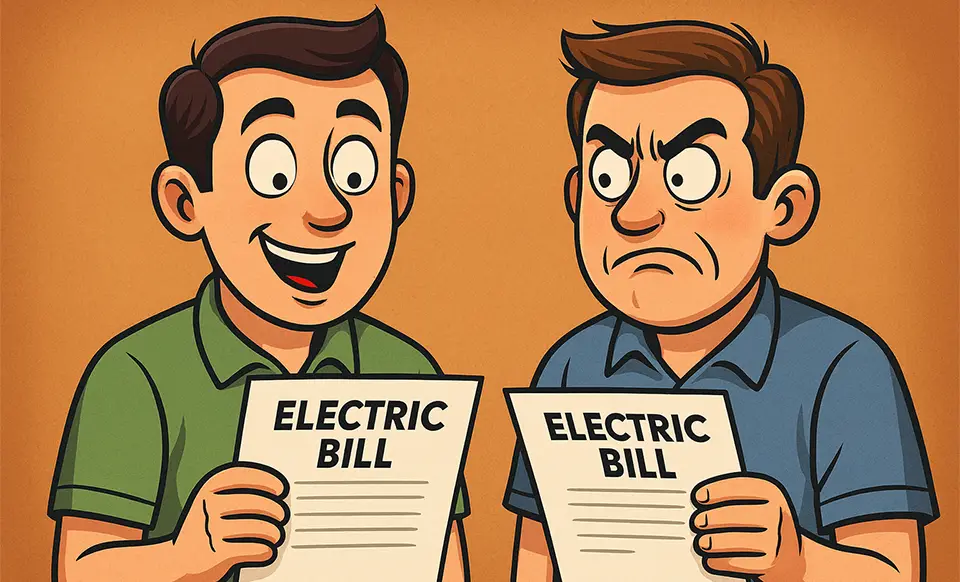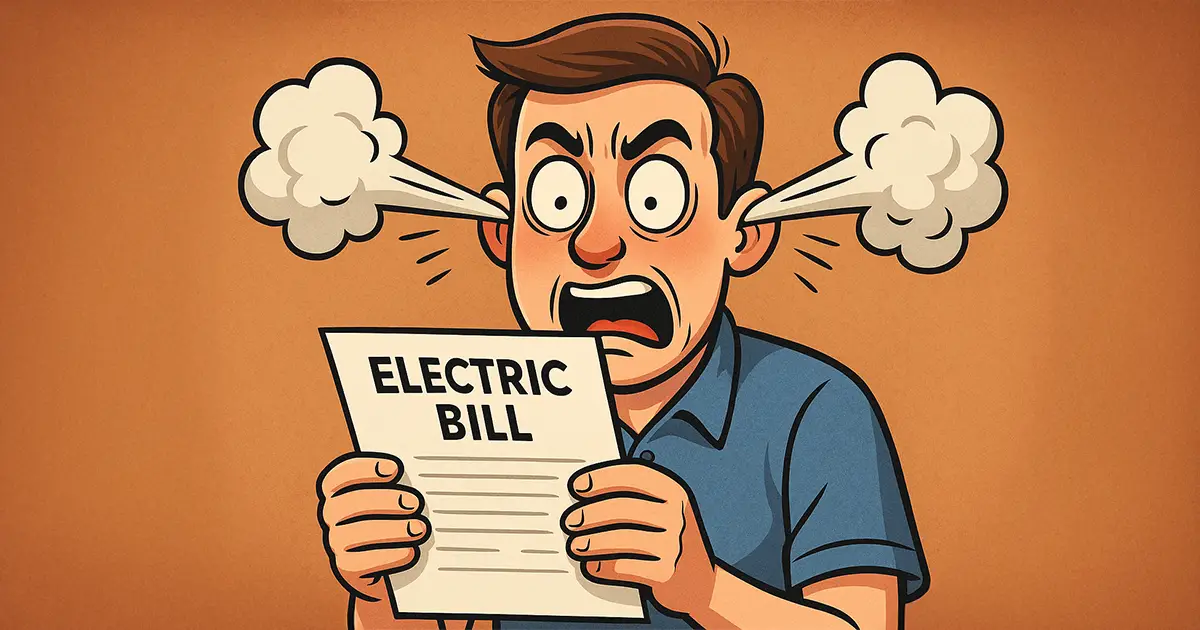Your electric bill arrives, and there it is again… that jaw-dropping number that makes you wonder if your air conditioner is secretly mining cryptocurrency. If you’ve ever stared at your utility bill in disbelief during summer months, you’re not alone. That AC unit working overtime to keep your Arkansas home comfortable is likely your biggest electricity guzzler.
But here’s the thing: understanding how many watts your air conditioner actually uses isn’t just about satisfying curiosity. It’s about taking control of your energy costs and making smart decisions about your home’s comfort system.
Think about it this way: would you drive a car without knowing its gas mileage? Probably not. Your AC deserves the same attention, especially when you consider that cooling costs can account for more than half of your summer electricity bill.
What Those Numbers Actually Mean
Watts measure how fast your AC consumes electricity, similar to how ‘miles per hour’ measures your driving speed. Your electric company charges you for kilowatt-hours (kWh), which is simply watts used over time, divided by 1,000.
Your AC’s cooling power gets measured in BTUs, which stand for British Thermal Units. BTUs tell you how much heat your system can remove from your home in an hour. A rough rule of thumb: divide your air conditioner’s BTU rating by three to get a ballpark estimate of its wattage.
So that 12,000 BTU unit? It’s probably using around 4,000 watts when running full blast. Of course, it does not run at maximum power constantly, since it cycles on and off to maintain your set temperature.
Startup wattage is also worth noting. When your air conditioner kicks on, it needs an extra surge of power for a few seconds before settling into its normal running wattage.
What Your Specific AC Type Uses
- Window Units: Small units cooling up to 400 square feet typically use about 500 watts per hour. Mid-sized units use about 900 watts, and large window ACs can pull 1,400 watts per hour.
- Portable Air Conditioners: Medium units use about 2,900 watts per hour. Larger models can demand 4,100 watts.
- Mini-Split Systems: These typically use between 700 and 2,000 watts per hour, depending on how many indoor units are running.
- Central Air Systems: Cooling capacity is measured in tons, where one ton equals about 12,000 BTUs and uses roughly 1,000 watts per hour. A 2,000-square-foot home generally needs about 3.5 tons, or around 3,500 watts per hour. Fan-only mode reduces usage to about 750 watts per hour.

Why Your Neighbor’s AC Bill Might Be Different
- Your Home’s Insulation Game: Poor insulation forces your AC to work harder, increasing energy usage.
- SEER Ratings Matter: Higher ratings mean better efficiency. Older units may have a SEER rating around 14, while newer units can reach 20 or higher.
- Temperature Settings: Lower thermostat settings can increase energy usage by 20% or more.
- Maintenance Habits: Dirty filters, coils, and vents reduce efficiency and increase power usage.
Taking Control of Your Cooling Costs
Monitoring wattage helps identify maintenance issues early. It also allows you to size generators correctly for backup power during outages.
There are a few ways to do this:
If you have a smart thermostat, it probably tracks how long your system runs and estimates its energy usage for you. If you have a traditional thermostat, then you can use your electric bill. Compare the same months year to year, accounting for weather changes.
Some people even use the “Label Method”, which entails multiplying volts by amps to estimate wattage.
Of course, the most important way to take control of your costs is by scheduling regular maintenance on your equipment. Bi-annual tune-ups keep your system running efficiently.
Change filters monthly during heavy-use seasons. Adjust thermostat settings gradually and use ceiling fans for air movement. Shade your home and outdoor unit to reduce cooling demand.
Final Thoughts
Understanding your AC’s wattage helps you make informed decisions about operation, maintenance, and upgrades. If your system has not been serviced recently or your bills seem unusually high, contact Greers Ferry Heat & Air today at (501) 825-7295 for a full system inspection. We will check for efficiency issues and create a plan to keep your home comfortable without overspending.

